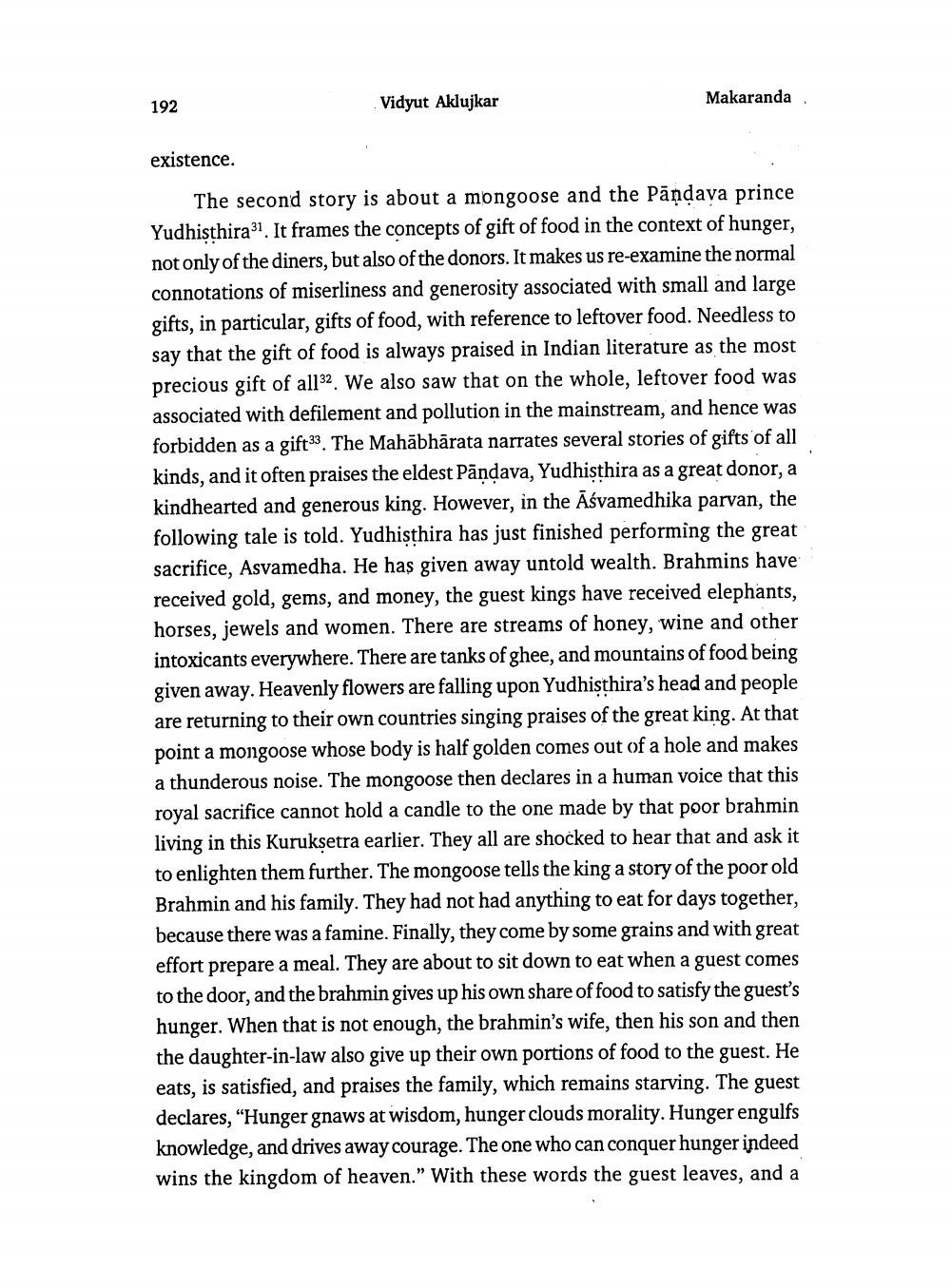________________
192
Vidyut Aklujkar
Makaranda
existence.
The second story is about a mongoose and the Pandava prince Yudhisthira". It frames the concepts of gift of food in the context of hunger, not only of the diners, but also of the donors. It makes us re-examine the normal connotations of miserliness and generosity associated with small and large gifts, in particular, gifts of food, with reference to leftover food. Needless to say that the gift of food is always praised in Indian literature as the most precious gift of all. We also saw that on the whole, leftover food was associated with defilement and pollution in the mainstream, and hence was forbidden as a gift". The Mahabharata narrates several stories of gifts of all kinds, and it often praises the eldest Pändava, Yudhisthira as a great donor, a kindhearted and generous king. However, in the Aśvamedhika parvan, the following tale is told. Yudhisthira has just finished performing the great sacrifice, Asvamedha. He has given away untold wealth. Brahmins have received gold, gems, and money, the guest kings have received elephants, horses, jewels and women. There are streams of honey, wine and other intoxicants everywhere. There are tanks of ghee, and mountains of food being given away. Heavenly flowers are falling upon Yudhisthira's head and people are returning to their own countries singing praises of the great king. At that point a mongoose whose body is half golden comes out of a hole and makes a thunderous noise. The mongoose then declares in a human voice that this royal sacrifice cannot hold a candle to the one made by that poor brahmin living in this Kurukṣetra earlier. They all are shocked to hear that and ask it to enlighten them further. The mongoose tells the king a story of the poor old Brahmin and his family. They had not had anything to eat for days together, because there was a famine. Finally, they come by some grains and with great effort prepare a meal. They are about to sit down to eat when a guest comes to the door, and the brahmin gives up his own share of food to satisfy the guest's hunger. When that is not enough, the brahmin's wife, then his son and then the daughter-in-law also give up their own portions of food to the guest. He eats, is satisfied, and praises the family, which remains starving. The guest declares, "Hunger gnaws at wisdom, hunger clouds morality. Hunger engulfs knowledge, and drives away courage. The one who can conquer hunger indeed wins the kingdom of heaven." With these words the guest leaves, and at




